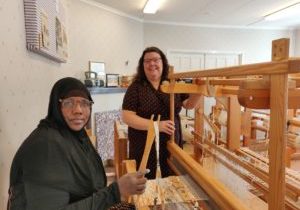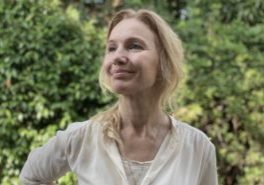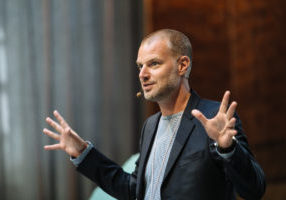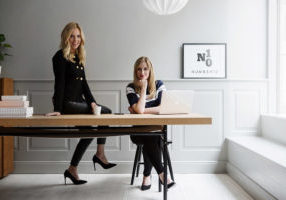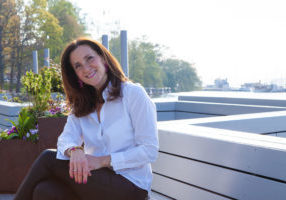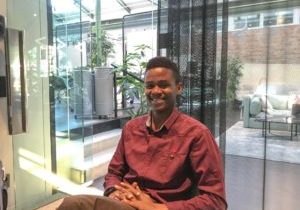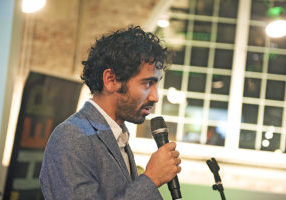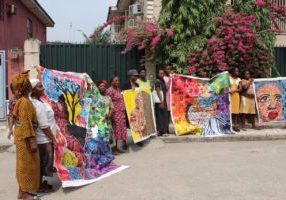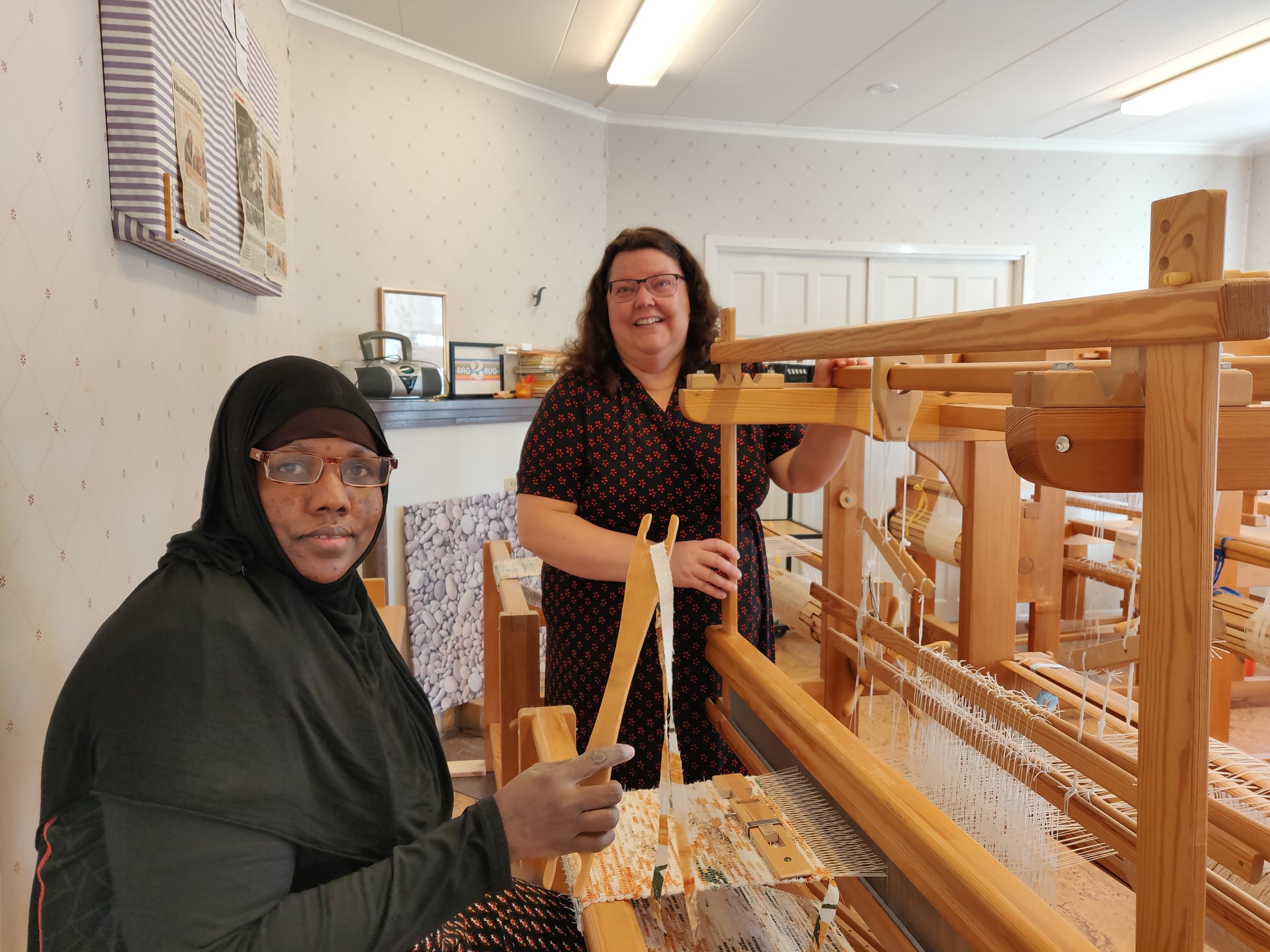
Using rags to create new products and social impact
December 14, 2020 - Interviews
Something that often makes social enterprises special is the fact that they often combine social with environmental impact – doing good on several levels. Swedish social enterprise Rag2Rug is one of those examples as it targets textile waste, unemployment issues as well as traditional craftsmanship. We’ve met up with Founder Gunilla Hjelm to explore her passion to create change, the key things that’s helped her grow her enterprise, and the importance of partnerships as Rag2Rug is this year’s winner of ‘Nyttigaste Affären‘ – a prize awarded to the best partnership between a traditional company and a social enterprise.
Hi Gunilla! Please let us know a bit more about why you started Rag2Rug.
I worked politically for many years on a national and international level with a focus on empowering women and creating opportunities for women to generate their own income but reached a point where I wanted to move away from policy and work more directly with women in my day-to-day work. This also coincided with a personal situation when one of my close friends became ill. I wanted to be closer to home and I also started thinking a bit more of what I wanted to do with my life. Many pieces fell into place and it was a good time to start what then became Rag2Rug.
Starting a social enterprise mid-life as I’ve done is, I believe, a success factor. I’m comfortable with my leadership and I bring a lot of life experience with me. I’ve also got experience from various types of projects and have seen what’s needed to create sustainable change as I’ve also seen a lot of good ideas go to waste as projects end or business ideas aren’t up to scratch. These are all experiences that contribute to the success of Rag2Rug.
What did the development process look like and what does Rag2Rug offer today?
Many social enterprises seem to start by a group of people wanting to do social good. They get together and the business idea gets developed over time. But I started with the business idea and also developed it based on the people I thought could work in the company with me. I wanted Rag2Rug to offer unique products that would be easy to produce and sell and today we sell our products to customers who like the way they look. That they’re produced by a social enterprise doing social good isn’t the main argument but can contribute to someone making a purchase. This is a key factor and something I believe will be crucial for social and sustainable enterprises going forward – that there is a demand for their products or services and that they’re equally good (or better!) as others on the market.
Today, we combine three good things at Rag2Rug when foreign-born women use waste textiles to weave new products such as rugs and cushions. We contribute to an improved integration process helping foreign-born women enter the Swedish job market, we make a positive environmental impact and we maintain and develop handicraft traditions.
What have been the biggest successes so far?
We’ve had various successes over these last four years. The first was developing the technique that allowed us to create rugs with square shapes that have helped us develop products that are unique and have become super popular.
Another success was being accepted on to the Care of Business Impact accelerator hosted by SE Forum and Impact Invest where I had the opportunity to develop a plan for my brand and marketing that has helped me a lot, and still does.
Creating important partnerships with various other companies has also been a success factor for us.
What are your most important partnerships and why?
We have various partnerships that are important and valuable to us in different ways. In terms of production, our partnership with second hand shop Erikshjälpen in Vetlanda is fantastic as they provide us with discarded textiles that would otherwise go to waste but that we can turn into beautiful new products. We’re also collaborating with the Swedish Public Employment Service that make sure women far away from the job market can come to us for training or employment support. And we’ve benefitted from support from local organisations such as Coompanion in Jönköping as well as local resellers helping us to raise awareness and sell our products.
Your partnership with Clarion Collection Hotel Victoria has recently been awarded the ‘Nyttigaste Affären’ prize for 2020 – how did the collaboration come about?
We had the opportunity to get some business development funding from the Swedish Agency for Economic and Regional Growth to develop an idea I had had from the start but hadn’t been able to work on. An idea about using used bed sheets from hotels, turning them into new products that could then be sold back to the hotels. A circular idea that’s a win-win solution for everyone.
Because of the funding we were able to hire Louise Ramberg who developed the partnership with Clarion Collection Hotel Victoria in Jönköping. We kicked it off in January 2020 and because of the pandemic we haven’t been able to take it further to other hotels, but the partnership with Hotel Victoria has worked really well which we’re very happy about and we hope we can continue developing the idea for other hotels once the tourism industry is back to normal.
What does it mean to you to have won the Nyttigaste Affären prize?
It means a lot! First and foremost, we’re very happy to get a confirmation that our collaboration is the right way to go and that what we’re doing together works. It feels especially great this year as so many other plans have been cancelled, for everyone. It encourages us to go the extra mile, to work harder and to stay resilient.
It also helps us show other companies how they can use a social enterprise like us to work with sustainability. It shows that social and environmental impact is beneficial and that it’s something companies can develop and make money off if you do it the right way and together with others.
Finally, I’m hoping that more companies and their customers will demand social and environmental impact so that more companies can change the way they work and create collaborations for a better society where more people have the opportunity to be included, to stand on their own feet and to create a better life for themselves.

